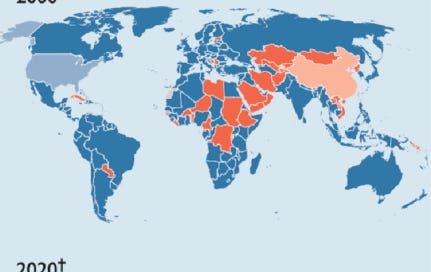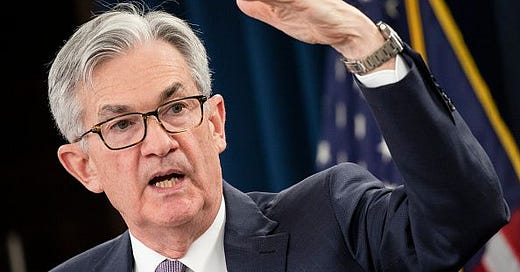
A tax collector once approached Peter and asked if Jesus had paid the Temple tax. Not one to offend anyone, especially tax collectors, Jesus told Peter to go to the lake and open the mouth of the first fish he caught. Inside it he would find a large silver coin with which he could pay the tax.
It’s almost laughable how easy it is for Jesus to find money.
Another story describes Jesus telling Peter to throw his net to the other side of the boat to catch fish. Peter’s business was a fishing business, you may remember. They ended up catching so many fish upon that recommendation that they couldn’t haul them in. You might say they had too many clients to process them all.
I’ve been thinking a lot about these stories while running my own business Snapmarket since August. I’ve sailed from elation to fear in a matter of hours, from closing multiple deals in a week to nary hearing a peep for multiple weeks. That’s the way of entrepreneurship, I suppose.
And yet there’s Jesus telling his disciples to find money in a fish’s mouth, or to throw their nets this way and that. I can almost see him flicking the ash from his cigarette, so cool, unperturbed, like it doesn’t even matter because it’s so easy.
That’s the point he’s trying to make though, isn’t it? Doesn’t God care more for you than all the flowers of the field and the birds of the air? Do not worry, O you of little faith!
But I do worry. A lot, it seems.
I’ve written quite a bit in this newsletter—the subject of which is “God and money”—about economics, finance, politics, trends in HR, books I’ve read, and so on. However, something I haven’t really explored is my own relationship to money.
I haven’t explored the trust and hope I place in it, or the uses for it, or what I hope for in my relationship with it. I aim to document that journey more here.
Two books have proven useful.
As a fellow at the Kirby Laing Centre for Public Theology in Cambridge, I’m in a research group that explores capital stewardship from a theological perspective. One of the members is seeking his PhD on the ethics of investing, the theology of finance, having spent more than a decade as an M&A accountant after receiving his degree in theology. He recommended I look into Mary Hirschfeld, a unique scholar in the field of theological economics.
Hirschfeld received her first PhD in economics from Harvard and her second in theology from Notre Dame. Not many people on the planet could boast of such credentials.
She wrote a book called Aquinas and the Market: Toward a Humane Economy, and this book is transforming many of my views about economics and finance.
In short, she critiques the rational choice model in economics as well as the benefits of so-called unlimited growth—and then offers a better way to think about both.
For the former, she argues that human choice can’t be distilled to a single decision between two desires to arrive at some kind of marginal utility, as in the rational choice model.
Instead, humans makes decisions more like artists than like machines:
Aquinas believes that our perfect happiness is to be found in the beatific vision, which is an enjoyment of the infinite good, which is God. So economists are not wrong to think of happiness as an orientation toward an infinite good. The difference lies in whether we think of that infinitude in quantitative rather than qualitative terms. To think of infinitude in quantitative terms is to think of it as extension. To think of it qualitatively is to think of it more as a fullness or completion. ... In other words, a proper exercise of reason involves making a cohesive whole out of one’s life, or at least trying to.
For the latter, she argues we should be thinking of growth, success, wealth, and so on like we think of medicine. If you have a headache, you need only two aspirin, not ten. So, if someone has ten aspirin, we shouldn’t envy that “wealth” because we don’t need it. If someone offers you ten aspirin via some lucrative opportunity, we should learn how to be content with only two, since that’s really all we need. In other words, we should put a cap on our consumption, labeling all else above a certain threshold as mere surplus to be given to folks more needy than we are.
I have a lot more to say about this book and the finer points she’s making. Of course, these conversations are extremely complex, and they can’t be whittled down to bumper stickers and political slogans. And yet, “The problem with money,” she concludes in one section, “is ultimately theological.”
I couldn’t agree more.
The second book was a short one that reoriented some of my assumptions about money.
In the early 90s, a group of financial professionals and theologians at the University of Edinburgh—much like my group affiliated with Cambridge—debated the ethics of finance from a theological perspective. The resulting book is called Capital: A Moral Instrument?
In it the authors discuss a range of topics—ethics, credit, markets, Adam Smith, usury, and so on—to arrive at some penetrating questions for Christians.
For example, is demand generation as we think of it today in marketing merely inducing covetousness in society? Or perhaps covetousness lies in the use of credit or our obsession with growth? Does contentment have any place in our society? “Credit is much more strongly marketed than saving,” they write at one point.
One of the stronger points made in the book is that of the moral dimensions of our financial transactions. I’ve been a fan of free markets and Milton Friedman’s arguments about them ever since graduating business school. But perhaps I took it too far.
The authors write,
The exercise of competition means that there will be losers as well as winners, and while this is true in many walks of life, Christians can never walk away and ignore their neighbours who have suffered serious misfortune through the operation of market forces. It is this recognition that markets are about people and not just about goods and money which will characterise a Christian’s stance in an increasingly anonymous world which too easily forgets the personal. … However much we recognise the benefits of the market, we must always scrutinise it from the point of the victims of its operation. What we say must express our human solidarity with them.
The more I’m learning about the Christian view of capital, the more I see its totalizing nature. It encompasses everything about our world. Everything. When you invest $100 into your index fund, for example, do those dollars amplify a message, product, service, or operation with which you might disagree? Have you scrutinized every one of those companies benefiting from your dollars in the index fund? What about its employees, suppliers, and so on?
I’ve written many times in this newsletter about CSR, ESG, diversity, and other hot-button issues touched upon by these books’ arguments. But I haven’t had a very thick theology about such things. By layering in that dimension, I hope to be a lot more thoughtful about not only my critique but also my vision for a better way.
That brings me back to the personal nature of money—my relationship with it, my God, and my soul.
It’s easy to trust God when the gravy train is rolling, when you’re makin’ that cheddar, when you got stacks on stacks on stacks. But when trouble comes, do I, with James, “consider it an opportunity for great joy”? Or do I “want what I don’t have, and scheme and kill [metaphorically] to get it”? Far too often, it’s the latter.
James would say I don’t have what I want because I don’t ask God for it. Well, here I am. I’m asking God to provide wisdom and peace, especially about money, by way of writing to you.
The book Capital: A Moral Instrument? asks what Christians could bring to the financial scene today. Here’s what they write:
A life-style which does not allow wealth or riches to cut them off from others and which more positively breaks down social barriers by knowing and moving among ordinary people. …
An attitude to money which doesn’t see the making of money as the most important objective in life, but which paradoxically brings a refreshing freedom from concern about money. It is an attitude which includes scrupulous honesty, of course, but is also concerned with broad fairness, ie with not taking advantage of the weak and the vulnerable. …
An awareness of the personal dimension of every transaction. This entails drawing attention to those who will be affected by decisions and actions and stressing that financial actions are not, humanly speaking, neutral.
An attitude to wealth in terms of stewardship. …
A critical function. A Christian’s witness will always present structures and practices and the courage to point out and discuss them with others. …
A method of working through institutions. …
Church action. …
In an attempt to improve my lifestyle and attitude surrounding money, to become more aware of the personal dimension of every transaction, and to have the courage to discuss them with others, I hope you’ll allow me to write a few words to you of a more personal nature, like writing a letter to a friend.
I pray that I will become someone of whom Jeremiah 17 could be written:
Blessed are those who trust in the Lord and have made the Lord their hope and confidence. They are like trees planted along a riverbank, with roots that reach deep into the water. Such trees are not easily bothered by the heat or worried by long months of drought. Their leaves stay green, and they never stop producing fruit.
Amen.
Thanks for reading.












